LiA Showcase: The Fijian Experience- Embracing conflict and Promoting change

Fiji, a country located in the South Pacific Ocean with over 330 islands, a place commonly associated with white sandy beaches, hot sun and tropical climates. The perfect place to escape daily life and laze the days away with a Pina Colada and a good book.
However, there is much more to Fiji than its admittedly gorgeous scenery and breath-taking viewpoints. It is a country with a rich culture, fascinating history and diverse people. While there are over 110 inhabited islands in the region, we spent our time on Viti Levu the largest inhabited island and within the Western Province of Nadroga there is Jubairata Village. A place nestled along the Sigatoka River about 80km from the city of Nadi.
Village Life- Bula!
Arriving in Fiji was a surreal experience, being greeted by friendly airport staff as I stumbled through the airport gates having just been on two flights with no sleep for the past 2 days. While I was thoroughly exhausted, I'd arrived in Fiji ready to embrace the whole experience fully and I was so excited to work with the NGOs and learn as much as I could.
Arriving in Jubairata was both exciting and nerve-racking, being aware of cultural and societal differences is one thing but actually living and experiencing it is another. Nonetheless I was prepped and ready to take on whatever was thrown my way and thrown in we were. To be allowed to stay within the village our group had to complete a traditional welcoming ceremony to be allowed and welcomed into the village by the Village Chief. This was a surreal experience, while we waited outside the Chief's house, I practiced the steps I had to complete and words I needed to say; this was a great honour and I wanted to show the village and its people the upmost respect by doing everything right.
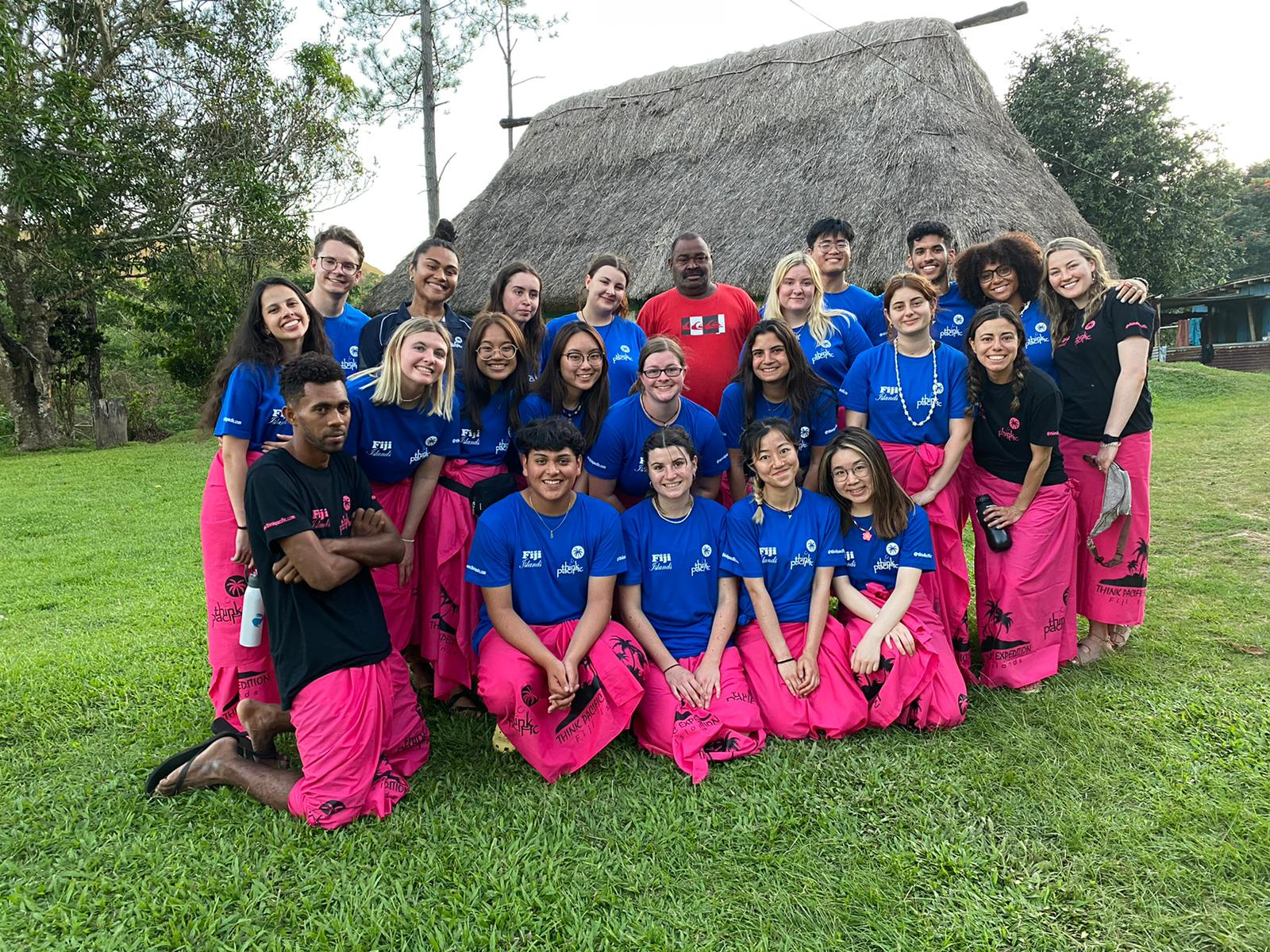
Being immersed within the Fijian Culture and village was a once in a lifetime experience and being able to build relationships with my Fijian family and the community was truly special. Living with my host family was difficult at first, I wasn't used to having so many people constantly coming and going through the house and so little privacy. Although it took a few days to get used to, I came to look forward to mealtimes and friendly drop-ins just so I could talk with my family, learn more about them, their culture and learn more of the Fijian language... I am now the proud owner of a full notebook of Fijian words and phrases!
Life within the village was busy, but most afternoons we had cultural sessions put on and led by the village youths. Most of the activities centred around a particular part of Fijian culture such as making a Bili Bili and Bilo's, planting Cassava, weaving headbands and tie-dying clothing (my once white t-shirt is now an interesting mix of colours!). These afternoons were filled with laughs and time to build relationships with the youths. I loved every session we had the chance to take part in, it was a chance to learn more about Fijian culture outside of what was specifically stated.
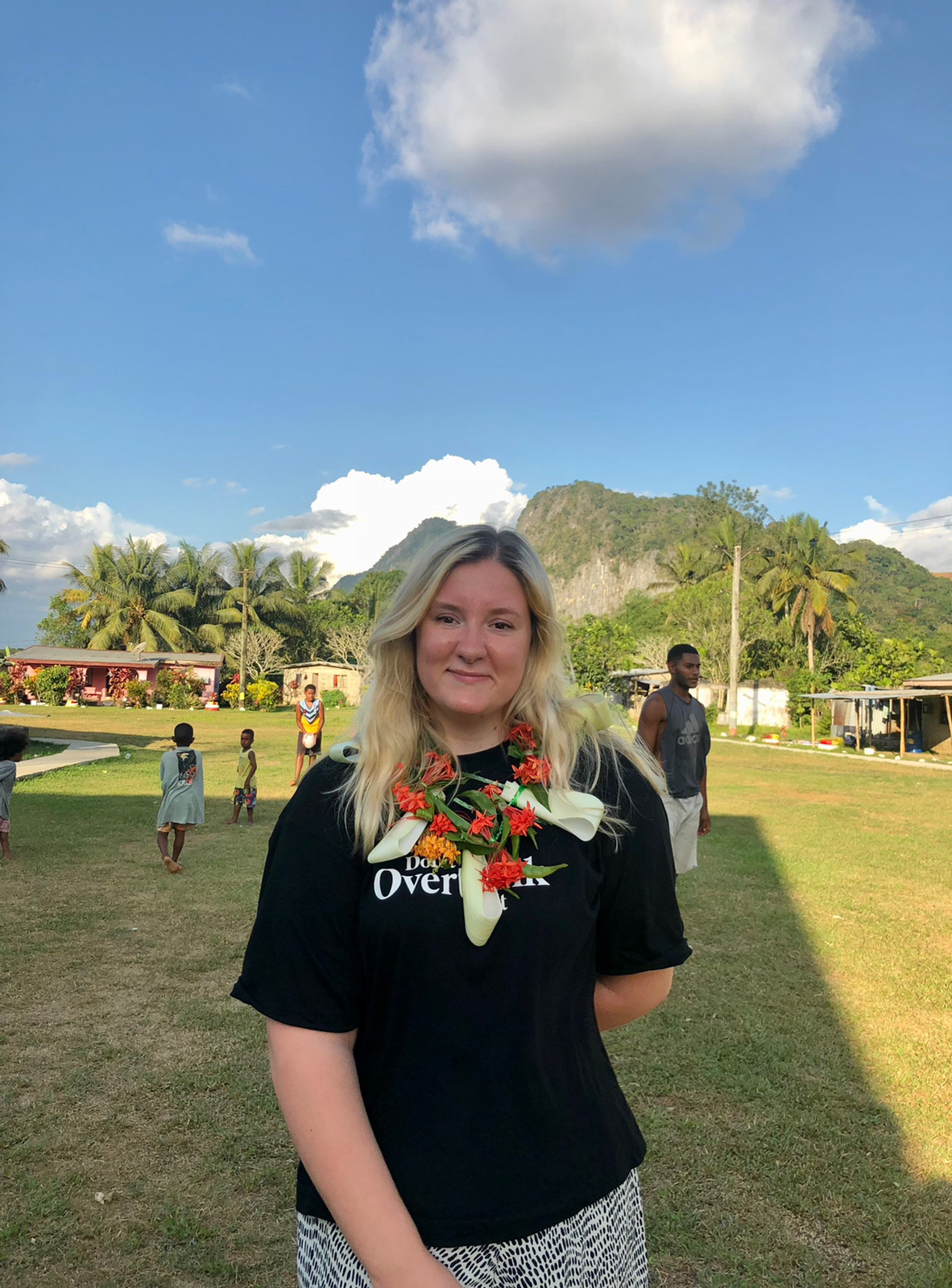
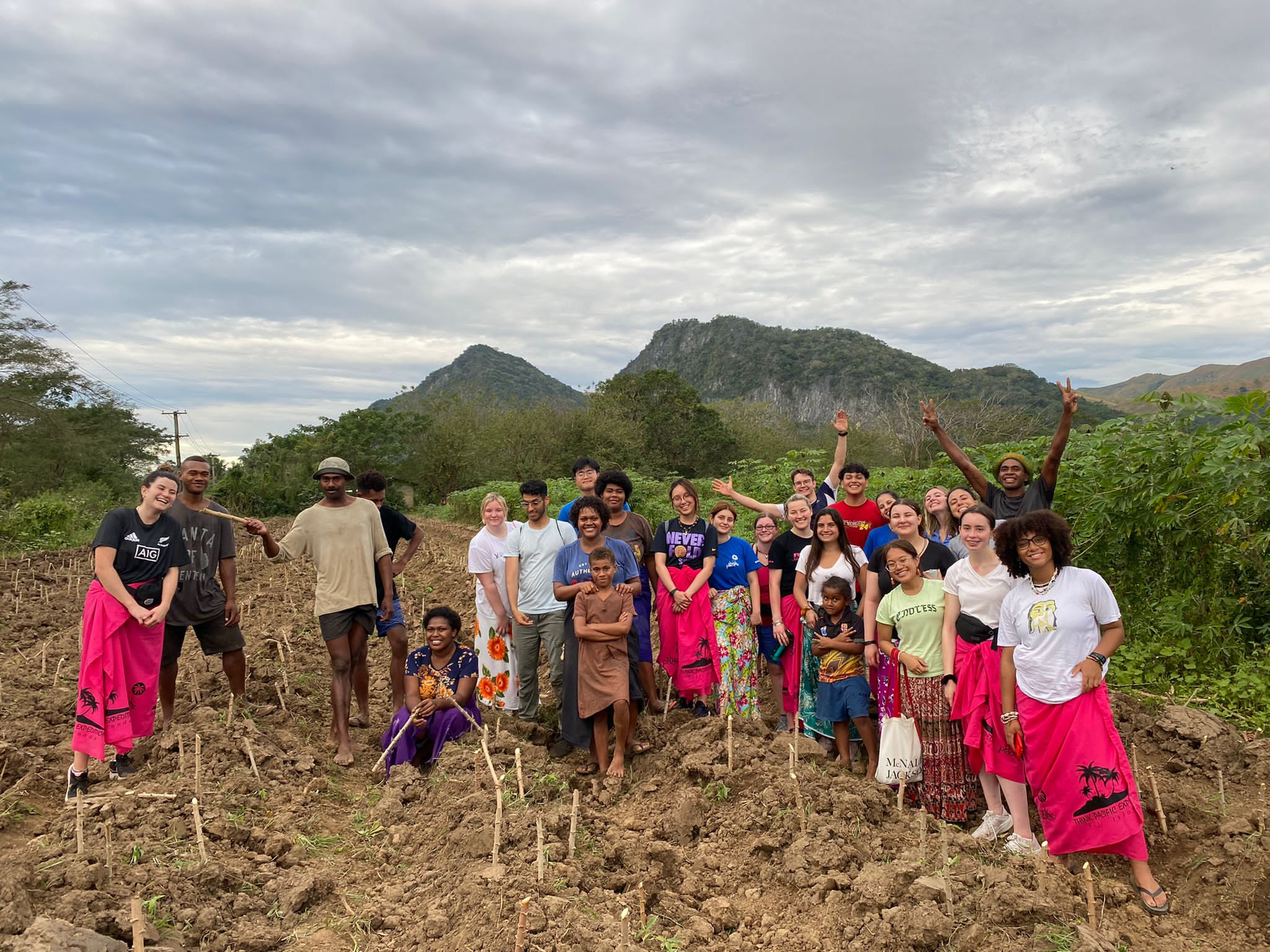
The First Half- Diabetes Fiji
The first half of the project saw us focusing on Diabetes. Diabetes is extremely common with almost 30% of the population being diagnosed with it; type 2 being more common than type 1. It is a source of significant issues within the Fijian population as such we collaborated with both Diabetes Fiji and the village youths to learn more about Diabetes and its effects through daily workshops in the morning. Although we also tried to encourage positive change outside of these workshops within our families; by the time I left my Lewa was only putting 1 spoon of sugar into her tea instead of 5 or 6! As part of the project, we helped educate the youths on how to use a glucose monitor to measure both their own and their families blood sugar levels as well as a blood pressure machine. This helped to ensure that even after we and the NGO partners had left the villagers could continue monitoring their health into the future,
At the end of the first half, I had the chance to help organise and run a health clinic in which people from our village and the neighbouring village could come and see the various health professionals who had gathered within the community hall. It was amazing to see all of these professionals come together, and the turnout was absolutely fantastic; approximately 200 people attended. A large number of people (over 75) received diagnosis of or were categorised as high risk for Diabetes, a diagnosis they otherwise would not have known about and thus were able to receive vital information on how to manage their condition and look out for warning signs. There were a number of stations for different health professionals including a foot clinic, body measurements, an eye clinic, nutritional advice along with an 'Antioxidant station' and counselling services. I was involved in the nutritional advice station, the compliant patient counselling station (this involved encouraging those who had a Diabetes diagnosis to continue on managing their condition) and the antioxidant station.
Overall, the first half of the project was a whirlwind experience, but I felt that we and the NGO managed to have a positive impact on the community both through adapting their view of Diabetes and improving their knowledge on how to manage it for themselves and their family members.
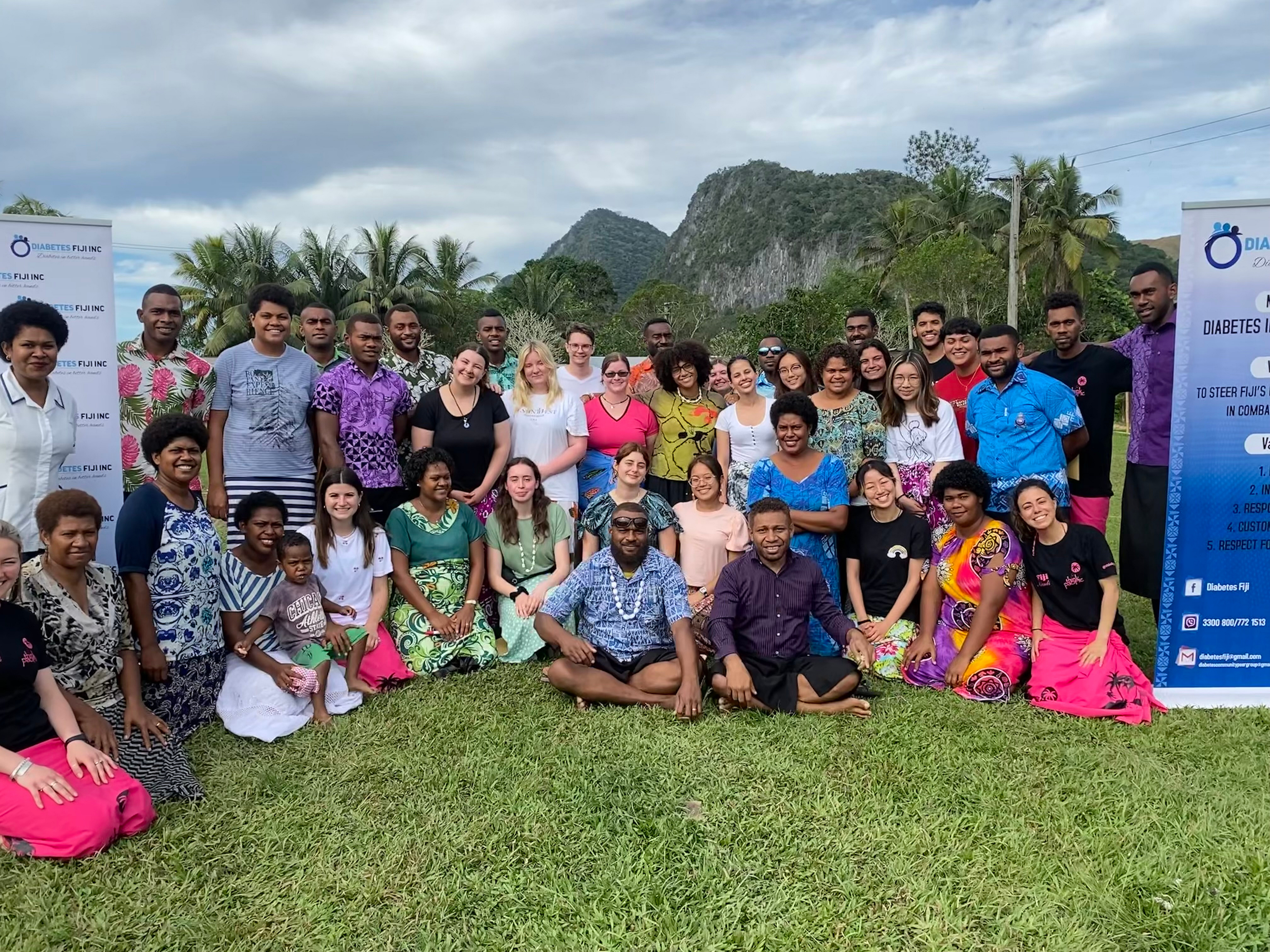
The Second Half- YouthChamps4MentalHealth
The second half of the project solely focused on learning about the views the Fijian youths held about Mental health and mental illness and introducing new ideas/views. Our group worked with ambassadors from Youth Champs with the aim of creating a safe environment to help open dialogue about Mental Health/illness and reduce the stigma around mental illness within the village.
We helped facilitate daily workshops along with helping to run certain sessions surrounding mental illness and suicide. I, alongside two other volunteers, were involved in researching and running the workshop focusing on suicide interventions, risk and protective factors of suicide and the introduction of counselling in the form of peer-to-peer support. This was a heavy session to run, it was emotionally taxing on both the volunteers and the youths, however, I felt that at the end of the session the youths felt more equipped to deal with a situation in which they may need to act as a supporter to another youth or villager,
However, running these sessions did not happen without some challenges, Discussions around mental health and mental illness can be difficult to manage and have even among people professionally educated in the field. As such I did expect some resistance and difficulties to arise throughout the project as within Fiji the idea of psychology/psychiatry and mental illness has not been fully developed or explored. Our first struggle came in the form of the youths laughing and joking during emotionally heavy sessions, it felt like they weren't taking the content seriously and it was jeopardising the safe space we had created for people to discuss their feelings and problems. I was aware that this was potentially a response to feeling uncomfortable with both the topics being discussed and the general atmosphere of the room, a way to lighten the mood if you will. But we fed this back to the NGO and the leaders, and they were able to organise a talk with the youths to discuss the expectations of behaviour within sessions and we asked them to leave the laughs and jokes till after the session. This message was well received, and we saw a massive change within the youths and their behaviour, they started to become more engaged in the sessions and the giggles and laughter was kept to a minimum to maintain respect within the space. Another issue came with working with the NGO partners themselves, it was difficult to come in and work with people who had a very clear plan of how they wanted things to be run; one which originally, we had no part in, We were able to negotiate for us to have more of an active role running the workshops, however, it became clear that some of the content and ideas they had for the workshops were potentially triggering and somewhat difficult present to a community who had little to no experience of mental illness before, Personally, I had to discuss removing certain phrases and activities from the workshop I helped run due to their trigger nature. I did receive some pushback from the partners which at first was a shock as for many of us volunteers it was obvious that we couldn't include certain things in the workshops. However, after a lengthy discussion explaining my reasoning for wanting them to be removed the partners agreed which was a relief as both myself and my group members were concerned about the potential damage some of the original content could have done.
Running these workshops was a thought-provoking experience, it allowed me to reflect on my own views about mental health and how we deal with it back home and being able to compare my own views with the views of the youth was both interesting and at times difficult. It was clear that the stigma surrounding mental health/illness was still very much present within Fijian culture and this showed during some of the discussions I had with the youths during our workshops. It was incredibly interesting to see how much tradition and religion influenced their ideas about mental health and how it should be treated. As a psychology student focusing heavily on clinical psychology it was at times difficult to hear about many of the negative views a lot of the youth had when discussing mental illness and suicide, but we were able to have in-depth discussions about our differing views with myself providing my own insight and ideas about mental health/illness to not so much completely change but to subtly challenge their currently held views.
To end the second half, we had a final workshop wherein there were group reflections, both the youth and ThinkPacific volunteers were able to share their thoughts and experiences in a safe space which had been cultivated through the workshops. It was an emotional experience with a few villagers sharing emotional messages, it was amazing to see the youths feel more comfortable sharing their feelings in a space and when thinking back to how they were at the start of the second half the change was clear.
Final Reflections:
Coming home after spending two months away from home was surreal. Reflecting on my experience, I learnt a lot from my time in Fiji, I learnt a lot about effective leadership and its many forms as well as the importance of empathy and cultural understanding. Throughout the project, I always tried to maintain a positive attitude even when I was not at my best (infected mosquito bites are not fun!) and listened to my team members ideas and views both within workshops and outside them.
I feel that I have developed a lot of key skills during my experience, my communication skills, adaptability and resilience were all challenged, and I feel that they have come out stronger after everything. The lack of communication between the NGO partners and ourselves meant that we often only received the plan for the workshop the day before which meant a lot of panicked researching and preparation, but we were still able to effectively deliver our presentations.
Compassion and empathy were two things I heavily relied on during this whole experience, I wanted to approach situations with not just an open mind but with compassion as well and I felt that this heavily tied into the leadership style I often fall back on which upon reflection with group members and others is a strength I really developed on this project.
This whole experience had its ups and downs, but it is one that I would gladly do again in a heartbeat. Having the opportunity to immerse myself in such a different and rich culture was fantastic and I now have a whole Fijian family that I am looking forward to seeing again when I have the chance. It's hard not to be sad that it's over but I am so happy that it happened and as my Fijian family would say this isn't goodbye but just see you later.
Sota Tale!
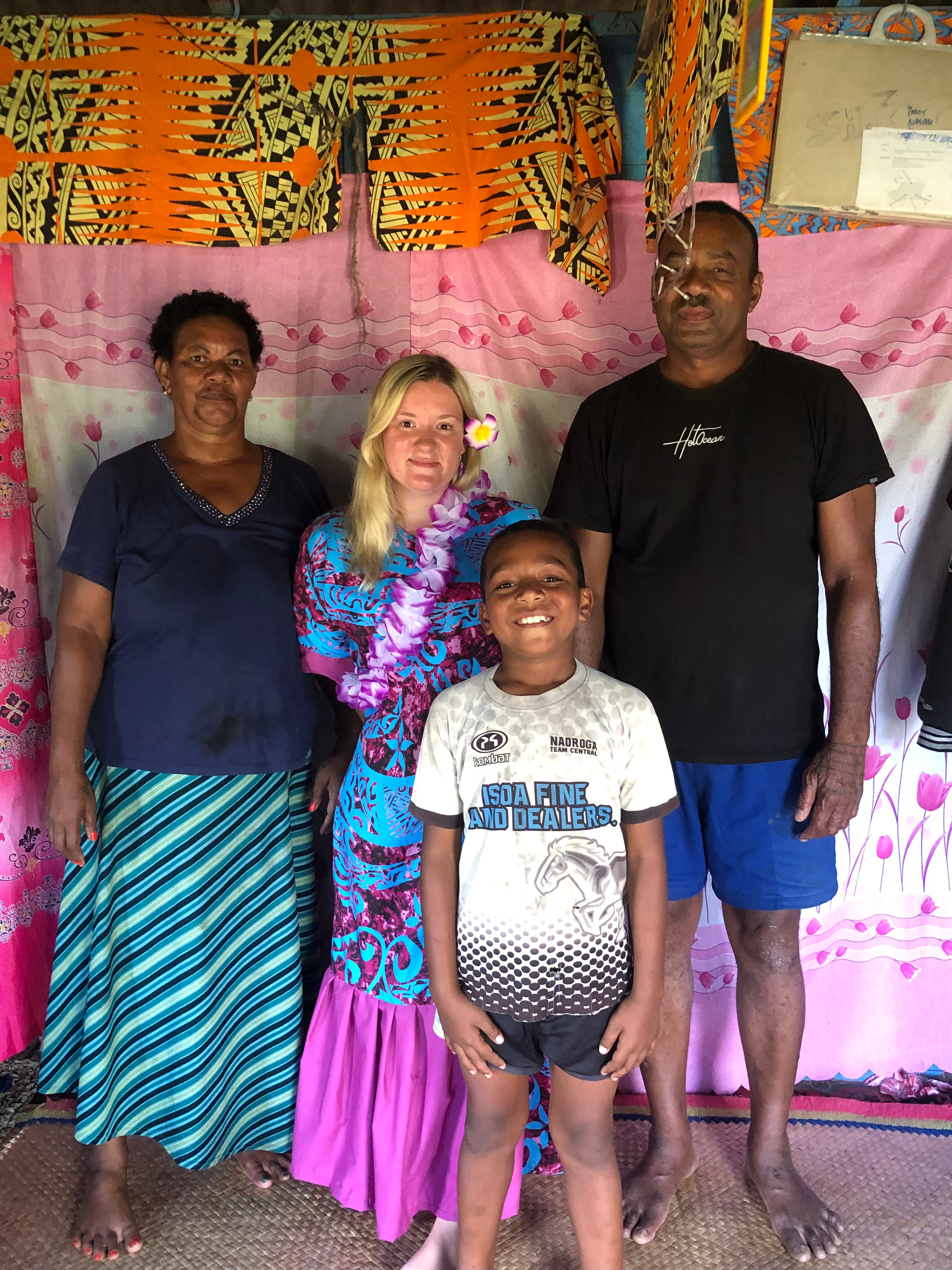
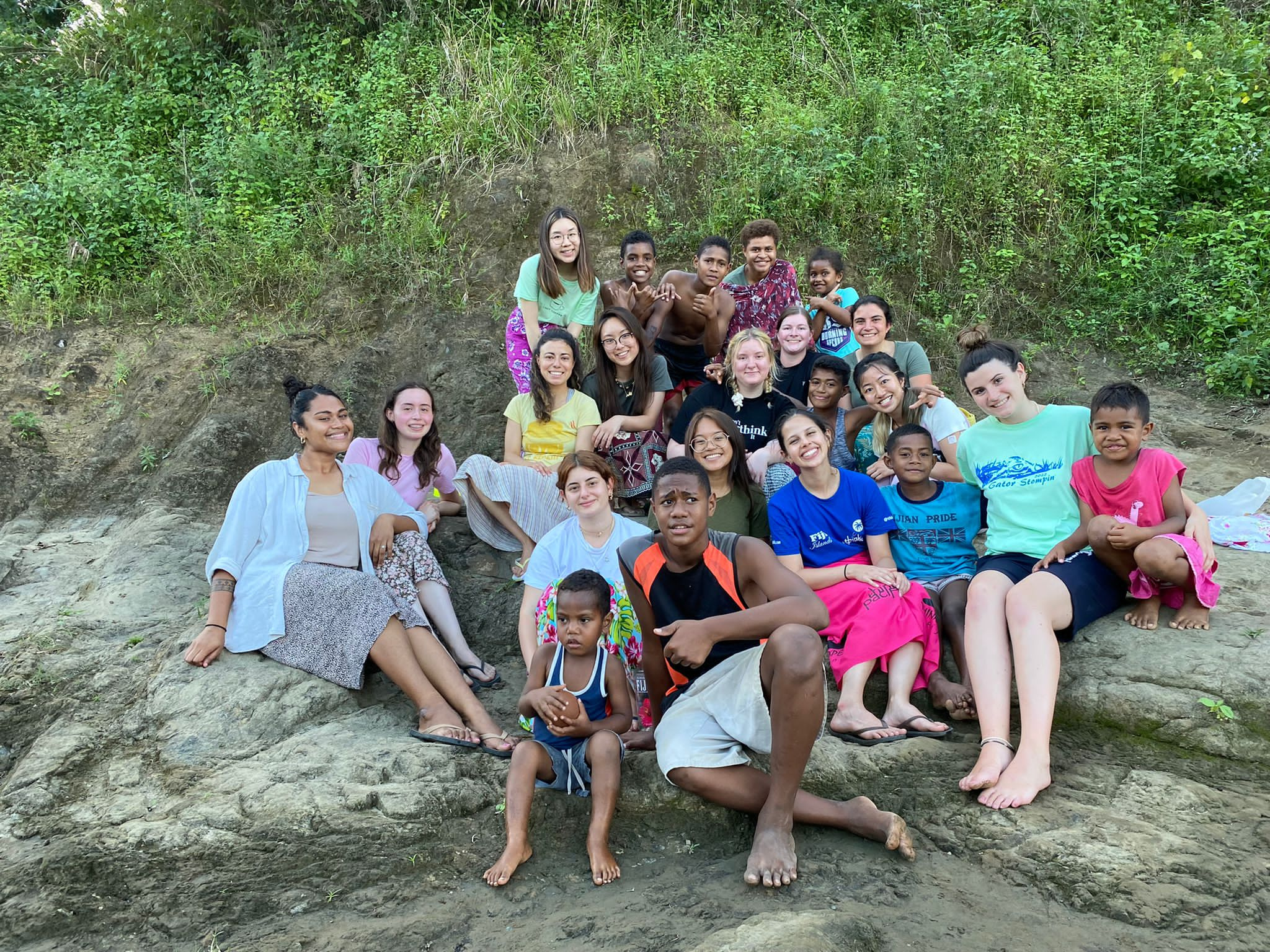
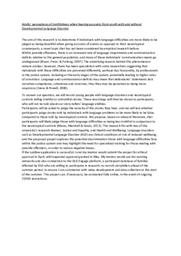
Please sign in
If you are a registered user on Laidlaw Scholars Network, please sign in